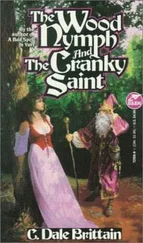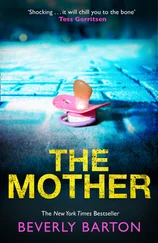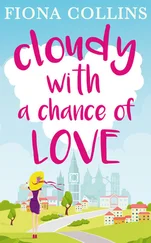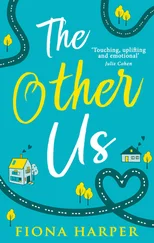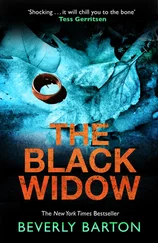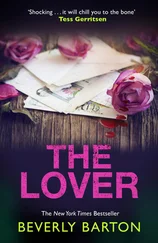“Don’t go near the case again, Salmond. They know you’re not going mad and won’t be so gentle next time. We have to leave it with the new team.”
“Understood,” she said sharply.
She was obviously in with someone senior, he thought. “Call me when you can talk,” he said.
THIRTY
The Mother
TUESDAY, SEPTEMBER 16, 2008
Dawn had made an effort. She’d bought an expensive jacket and put on a pair of heels with new tights and a skirt. The editor made a huge fuss over her, meeting her at the lifts and walking her through the newsroom in front of all the reporters. They smiled and nodded from behind their computer terminals, and the man who had sat in court every day put down his phone and came over to shake her hand.
The editor’s secretary, an impossibly elegant woman with magazine-standard hair and makeup, followed them into the inner sanctum and asked if she wanted a tea or a coffee. “Tea, please. No sugar.”
A tray arrived, and the small talk ended. The editor was a busy man.
“Now, then, Dawn, let’s talk about our campaign to bring Taylor to justice. We’ll need a big interview with you to launch it. And a new angle.”
Dawn Elliott knew exactly what the editor wanted. Years of media exposure had toughened her up. A new angle meant more space on the front page, follow-ups in all the other papers, breakfast TV interviews, Radio 5 Live, Woman’s Hour , magazines. Like night follows day. It was exhausting, but she had to keep going, because most days she knew, really knew, deep inside her, that her baby was still alive. And, on the other days, she hoped.
But sitting on a sky-blue foam cube—a corporate decorator’s attempt to humanize the space—becalmed in the air-conditioned office, she also knew that this newspaper wanted her to say for the first time that Bella had been murdered. It would be the “belter of a story” the editor required to go after Glen Taylor.
“I’m not saying Bella is dead, Mark,” she said. “Because she isn’t.”
Mark Perry nodded, his faux sympathy stiffening his face, and pressed on. “Look, I completely understand, but it’s difficult to accuse someone of murder, Dawn, if we’re saying that his victim is still alive. I know how hard this must be, but the police believe Bella is dead, don’t they?”
“Bob Sparkes doesn’t,” she replied.
“He does, Dawn. Everybody does.”
In the silence that followed, Dawn struggled with her options: please the papers or go it alone. She’d talked to the PR advising the campaign on pro bono terms earlier that morning, and he’d warned she’d face “Sophie’s Choice.” “Once you say that Bella is dead, there’s no going back, and the danger is that the search for her will stop.”
That couldn’t happen.
“I think we should keep the question open,” Dawn said. “Why don’t we stick with accusing him of the kidnapping? When I find her, you won’t want to be the paper that said she was dead. Everyone will say that you stopped people from looking for her.”
Perry walked to his desk and came back with one of the A3 sheets of paper covering his desk. He shifted the tray to another cube and laid the sheet on the table. It was the mock-up of a front page—one of several drawn to sell the Herald ’s exclusive. There were no stories cluttering the page, just seven words screaming: “This Is the Man Who Stole Bella” and a photograph of Glen Taylor.
Perry had favored the headline “KILLER!” but that would have its day when they nailed the bastard.
“What about this?” he asked, and Dawn picked it up and scrutinized it like a pro.
In the beginning, she could hardly bear to look at Taylor’s face, seeing it beside the face of her baby in every paper, but she’d forced herself. She looked at his eyes, searching for guilt; looked at his mouth, looking for weakness or lust. But there was nothing there. He looked like a man she might sit next to on a bus or stand behind in a supermarket queue, and she wondered if she ever had. Was that why he’d picked her child?
It was the question that reverberated through every waking minute. Her dreams were full of Bella, glimpses of her just out of reach, being unable to move or make any progress toward her child no matter how hard she ran and, on waking, realizing as if for the first time that she was gone.
At first she was unable to take part in any sort of life, she was so overwhelmed by failure and helplessness. But when, eventually, she’d surfaced from the sedatives, her mum had persuaded her to fill her days with practical things. “You need to get up, get dressed every day, and do something, Dawn. Even something small.”
It was the same advice she’d given when Bella was born, when Dawn struggled to cope with the sleep deprivation and the colicky screaming of her new baby.
And she’d got up and got dressed. She’d walked down the path to the gate. She’d stood in the garden like Bella had and looked out at the world passing by.
The Find Bella campaign had begun on Dawn’s Facebook page with her posting something about Bella or how she was feeling most days. The response was like a tidal wave, swamping her and then buoying her up. She gathered thousands, then hundreds of thousands of friends and likes as mothers and fathers all over the world reached out to her. It had given her something to focus on, and when people with money contacted her to offer cash to help find her little girl, she’d said yes.
Bob Sparkes had admitted he had reservations about some of the directions taken by the Find Bella campaign but said it was okay as long as his officers weren’t being diverted from the task in hand. “Still, you never know,” he’d told her. “The campaign might shame someone into coming forward.”
Kate will go mad when she sees I’ve gone with the Herald —“the Enemy ,” she’d told herself when first approached. But her lot didn’t match the offer on the table. She’ll see the sense .
In truth, she wished it would be Kate and Terry handling the story, but the Daily Post had passed on the opportunity.
It was hard because she’d got close to Kate over the months. They talked most weeks and met up every so often for lunch and a gossip. Sometimes the paper would send a car to bring Dawn to London for the day. And in return, Dawn told Kate everything first.
But the Post ’s coverage had petered out recently. “Is the paper bored with me?” she’d asked Kate at their last meeting when an interview failed to appear.
“Don’t be daft,” the reporter had said. “There’s just quite a lot of other stuff happening at the moment.” But Kate hadn’t been able to meet her eye.
Dawn was no longer the lost girl on the sofa. She understood.
And when the Herald called her to propose a campaign to bring Taylor to justice and a generous donation to the Find Bella fund, she’d accepted it.
She’d rung Kate to let her know her decision—she owed her that. The call sent the reporter into a blind panic. “Christ, Dawn, are you serious? Have you signed anything?”
“No. I’m going to see them this afternoon.”
“Okay. Give me twenty minutes.”
“Well . . .”
“Please, Dawn.”
When the reporter rang back, Dawn knew immediately that Kate was empty-handed.
“I’m sorry, Dawn. They won’t do it. They think it’s too risky to accuse Taylor. And they’re right. It’s a stunt, Dawn, and could blow up in your face. Don’t do it.”
Dawn sighed. “I’m sorry, too, Kate. You know it’s not personal—you’ve been brilliant—but I can’t stop now just because one paper has lost interest. Better go, or I’ll be late. Let’s speak soon.”
And here she was, looking through the contract and rechecking the subclauses for loopholes. Her lawyer had already read it but had advised her to take another look “in case they slip something new in.”
Читать дальше

